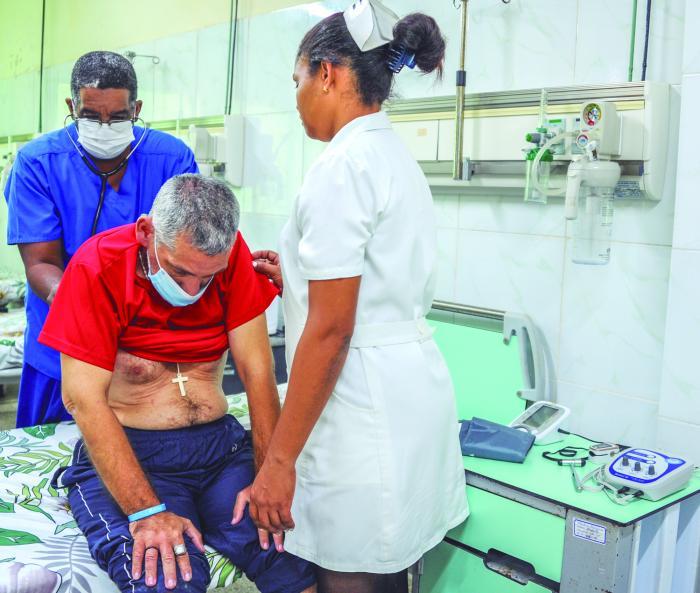
Health needs intersectoral approaches and cross-cutting approaches to global challenges, and this paradigm will only be possible with the union of all sectors in order to achieve people's wellbeing.
This was one of the statements made by José Angel Portal Miranda, Minister of Public Health, during the conference Cuba and the One Health Paradigm. Science, Solidarity and Human Commitment in the Face of Global Challenges, delivered during the inauguration of the 5th Cuba Health 2025 International Convention.
Portal Miranda said that the event, which is a space to debate and collectively build a humanist medical assistance, promotes the commitment to life and defends that health is a human right.
“That is why it is urgent to outline integrative strategies that allow us to respond to the problems that are currently manifesting themselves,” he said.
All this, he added, requires systematic, multidisciplinary, coordinated and solidarity-based actions “that we have not always been able to implement for the benefit of the sector.”
The idea of One Health, born from the dialogue between human medicine, veterinary medicine and ecology, recognizes that all the guidelines are connected, he added.
And, precisely, revolutionary Cuban medicine, that which transcends borders since its conception, had its bases in prevention, community vector control, as well as the comprehensive training of its professionals, always in line with an integral perspective of wellbeing, he added.
“In such sense, the approach towards primary care allows the health system to focus actions on individuals and families, with a territorial and intersectoral projection towards the community, with organized services.”
ON THE NATIONAL HEALTH SYSTEM
Dr. Portal Miranda highlighted as one of the greatest health achievements of the Island the Family Doctor and Nurse Program, created in 1984 under the vision of Commander-in-Chief Fidel Castro Ruz, which has its pillars in health teams that work with direct responsibility on a limited number of families in a preventive, continuous and comprehensive model.
He stressed that, for Cuba, this articulation is “a concrete expression of One Health, linking clinical, social and environmental aspects.
He detailed that the country currently has more than 10,800 medical offices in the communities, integrated to 451 polyclinics, a network that has made it possible to achieve health indicators comparable to those of developed nations.
Among the clearest examples, he cited an infant mortality rate of 7.1 per 1,000 live births in 2024, and a life expectancy of 77.8 years in spite of financial limitations and the blockade imposed by the U.S. government, “a flagrant violation of human rights” by limiting access to medicines and medical technology, he denounced.
The head of the sector pointed out that the strengthening of the Cuban vaccination program has made it possible to have 17 vaccines, ten of which are nationally produced, and others that are used for campaigns.
The political will of the Cuban State has been essential to demonstrate the principles of solidarity and cooperation in health matters, and following those values, Cuban collaborators have contributed, often anonymously, to the welfare of mankind.
“When everyone fails, our professionals are there,” praised Portal Miranda, and pointed out that the World Health Organization considers the Cuban health system as a world reference.
Health is a universal human right and, therefore, Cuba will continue to train professionals who defend life, he said.















